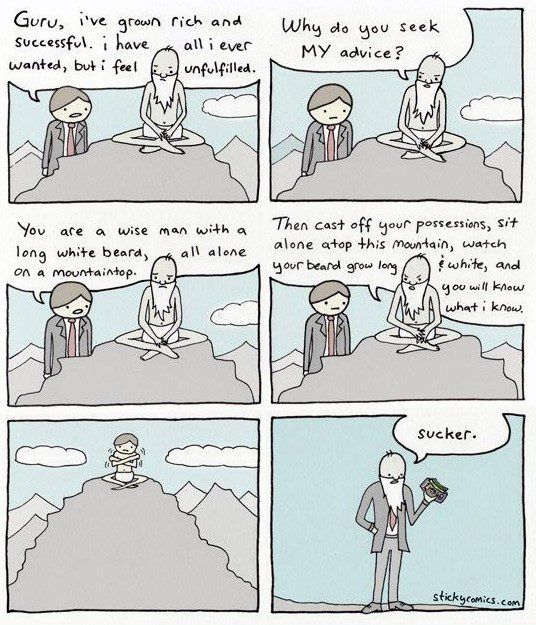The State of Public Philosophy
Aug 07, 2011In the 18th and 19th Century, philosophers and intellectuals were immersed in politics and popular culture.

Being told that philosophy is still useful—for tech executives who like ingesting pop wisdom in order to eliminate bullshit in their business lives—might make one wish philosophy were just dead instead. But this philosophy-as-bullshit-killer approach to the discipline is currently spreading around Silicon Valley in part due to the influence of a man named Andrew Taggart, who holds a PhD in philosophy.
In a recent profile in Quartz, Taggart explains the services he provides as a "practical" philosopher who provides counseling: "Philosophers arrive on the scene at the moment when bullshit can no longer be tolerated. We articulate that bullshit and stop it from happening. And there's just a whole lot of bullshit in business today."
But this fetishizing sales-pitch for a philosophy that is "practical"—like some kitschy rendition of Stoicism for the stressed out entrepreneur prepping for Y-combinator—just ends up regurgitating the very same stereotypes and prejudices that make philosophy such a caricatured and unattractive endeavor in the first place. It essentially sets aside a certain number of popular, pop-versions of philosophies that amount to semi-elegant articulations of generic self-help wisdom, and then rules out the rest of philosophy as essentially pointless intellectual meandering that you might as well do while working as a barista.
To entertain the notion that there is a "practical" philosophy is to equally declare a category of "impractical" philosophy, and the all-too-common prejudices that structure our society's relationship to and understanding of the humanties in general inevitably end up banishing most of philosophy into the latter category.
Quartz, after all, has already adopted a new turn of phrase—"practical philosopher"—to describe figures like Taggart who "insist philosophical inquiry is the essence of an executive's job." Taggart's intervention for his clients, whom he charges around $100 an hour, is to lead them "down a path of inquiry that can lead to genuine understanding, better business decisions, and, eventually, happiness." Philosophy in this sense amounts to little more than a cool, new, glossy life-hack that you just might be able to afford if you're running a successful company or start-up.
No one is saying that philosophy belongs only to the academic elite, or that it shouldn't often be applicable to everyday experiences, or that philosophy can't help individuals think through existential crises. But it strikes me as deeply problematic to find with increasing regularity philosophy being commodified rather than being taken seriously as an incredibly rich body of literature that takes more than what a $100 hour-long session can deliver. Philosophy should be learned and applied, not denigrated to the level of tech bro self-help.
The Daily Nous, in their report on the Quartz article, had the right idea by citing this comic from Sticky Comics:
